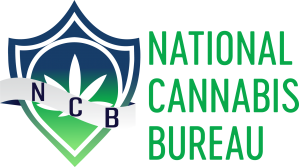Kentucky will be hosting a summit in La Grange on November 30 to offer state residents the chance to learn about ibogaine, a psychedelic substance suspected to have potential in helping patients with treatment-resistant substance abuse disorder.
Kentucky has a big problem with opiate abuse. A 2019 study predicted that 5.9% of the state’s population was afflicted with opiate use disorder. Settlement money from lawsuits against pharmaceutical companies responsible for exacerbating the opiate crisis has used to create the Kentucky Opioid Abatement Advisory Commission, a regulatory body responsible for distributing over $842 million from opiate lawsuits.
Forty-two million dollars of that money is being considered for ibogaine research, and the Kentucky Summit on Exploring Breakthrough Therapeutic Potential for Opioid Use Disorder is to help the public learn about the drug. Cost of attending the summit ranges from $99-$149 and will include keynote speeches from some notable names including but not limited to the following:
- Dr. Deborah Mash, ibogaine researcher
- Professor Dr. Nolan Williams, Stanford Brain Stimulation Lab
- Doc Askins, author and podcaster
- Rick Doblin, founder of MAPS
- Brett Waters, founder of Reason for Hope
- Kerry Rhodes, former NFL player
- Srinivas Rao, Atai Life Sciences co-founder
“We recognize that there is likely a large learning gap among the people of Appalachia and the surrounding communities to understand what ibogaine is, what it can do, and how it can possibly help them or a loved one,” said Ben Greenzweig to Forbes. Greenzweig is the founder and CEO of Momentum Events which is organizing the summit. “We want to provide free and low-cost education for the community, so they can begin understanding what ibogaine is, how it works, how it can help, and who it can help by sharing scientific, clinical, policy, and patient perspectives.”
Ibogaine is is an extract taken from a rainforest shrub found in Central Africa called Tabernanthe iboga. It’s a very powerful psychedelic with varying user experiences but can generally be described as much more intense than a typical, lower dose mushroom trip. Many users report cessation of opiate use immediately after one session.
However, ibogaine use is not as cleanly-cut of an issue as one might hope. No deaths have occurred during medical trials (because there haven’t been many trials, if any) but there have been anecdotal reports of adverse cardiovascular events and seizures occasionally resulting in death. Greenzweig told Forbes he hopes the summit will help educate Kentucky residents about the potential of ibogaine but he stressed that it’s not a cure-all, and it comes with its own risks.
“I hope individuals who have a closed mind to this therapy have the door opened just a crack to want to learn more. It’s important to know that psychedelic therapy is not for everyone. It’s not a magic bullet. It’s a tool that can be part of someone’s healing journey,” Greenzweig said to Forbes. “For those who are already open, I hope they come away with a greater understanding of how these medicines can work, why they should be accessible, and how to use them responsibly.”
What little research there is on ibogaine does show promise in treating symptoms of addiction. A peer-reviewed study from New Zealand in 2018 followed 14 people over 12 months after an ibogaine experience and found that almost all the participants had reduction in withdrawal symptoms or full cessation of use, with the exception of one participant who died during the study.
“A single ibogaine treatment reduced opioid withdrawal symptoms and achieved opioid cessation or sustained reduced use in dependent individuals as measured over 12 months.” the study said. “Ibogaine’s legal availability in New Zealand may offer improved outcomes where legislation supports treatment providers to work closely with other health professionals.”
Anecdotally, I have a small bit of testimony from a friend I’d like to share here. I’ll keep his name out of it because he has a job and a life and what not but this friend of mine has struggled with heroin and fentanyl addiction for years and years and I am pleased to report he is over 12 months clean after one experience with ibogaine in Mexico. He had the following to tell me about his experience:
“It changed my life, I think about it every day,” he said. “Ibogaine is a mixture of very unpleasant and breathtaking with a sprinkle of weird peppered across about 16 hours of intense hallucinations.” he said. “I plan on doing it again next year, however next time my mind will be stronger. There’s something in there that I want to see more of. It doesn’t show you what you want but what you need to see.”
The post Kentucky Considers Funding Ibogaine Research as Possible Treatment for Opiate Addiction appeared first on High Times.

